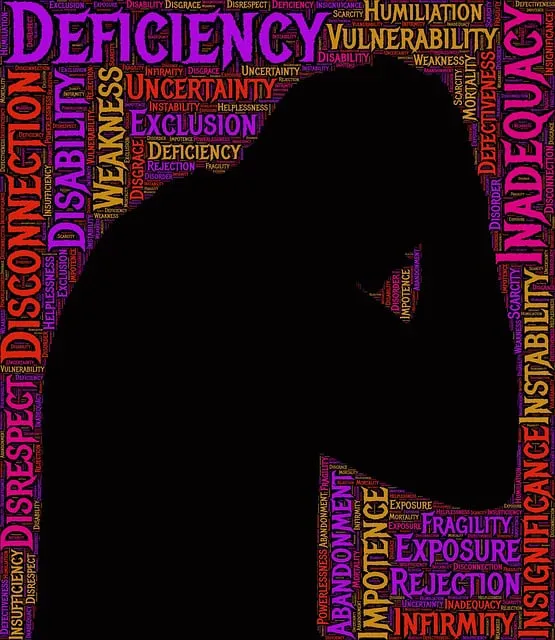Stress, as detailed in Littleton Kaiser Permanente psychiatry reviews, is a complex response to internal and external demands from sources like financial pressures or life changes. Chronic stress is linked to physical and mental health issues including anxiety, depression, and cardiovascular diseases. Mitigating these effects requires developing inner strength through effective stress management techniques, such as recognizing triggers, adopting healthy coping mechanisms, prioritizing self-care, setting boundaries, and practicing mindfulness – strategies highlighted in Littleton Kaiser Permanente psychiatry reviews. Psychiatry at Littleton Kaiser Permanente offers comprehensive programs that incorporate physiological, psychological, and social aspects of stress, leveraging methods like CBT, mindfulness practices, and lifestyle changes to reduce levels and promote mental wellness.
At Littleton Kaiser Permanente, we explore effective stress management techniques through comprehensive psychiatry services. This article delves into the multifaceted approach to tackling stress, starting with understanding its root causes and effects. We review the importance of psychiatric care in teaching practical strategies, highlighting Cognitive Behavioral Therapy (CBT) as a powerful tool. Additionally, mindfulness practices, lifestyle changes focusing on nutrition, exercise, and sleep are explored for holistic stress reduction. Discover how these techniques can transform your well-being, based on expert insights from Littleton Kaiser Permanente psychiatry reviews.
- Understanding Stress: Unraveling the Causes and Impact
- The Role of Psychiatry in Teaching Effective Stress Management
- Cognitive Behavioral Therapy (CBT): A Popular and Powerful Tool
- Mindfulness Practices for Daily Relaxation and Focus
- Lifestyle Changes: Nutrition, Exercise, and Sleep for Stress Reduction
Understanding Stress: Unraveling the Causes and Impact

Stress is a complex psychological and physiological response to various internal and external factors. It can be triggered by overwhelming demands, challenging situations, or even positive life changes. At Littleton Kaiser Permanente psychiatry reviews often highlight that stress management begins with recognizing and understanding individual stressors. These could range from financial pressures and work-life imbalances to interpersonal conflicts or health concerns. The impact of stress extends beyond mere annoyance; chronic stress is linked to numerous physical and mental health issues, including anxiety disorders, depression prevention, and cardiovascular diseases.
Developing inner strength through effective stress management techniques is crucial for maintaining mental wellness. By identifying triggers and adopting healthy coping mechanisms, individuals can build resilience. This involves learning to prioritize self-care, set boundaries, and practice mindfulness—all strategies that have been shown to reduce stress levels and promote a sense of calm. Understanding the interplay between stress and one’s overall well-being is the first step towards making positive changes in one’s life.
The Role of Psychiatry in Teaching Effective Stress Management

Psychiatry plays a pivotal role in teaching effective stress management by leveraging expertise and evidence-based practices. At Littleton Kaiser Permanente, psychiatry reviews highlight successful approaches to mental health education programs design, focusing on Mind Over Matter principles. These programs are meticulously crafted to empower individuals with tools for managing daily stressors, promoting mental wellness, and enhancing overall quality of life.
The psychiatric approach integrates a multifaceted perspective, encompassing physiological, psychological, and social aspects of stress. Through various methods, from individual therapy sessions to group discussions and the production of insightful mental wellness podcast series, psychiatrists guide participants in understanding stress triggers and developing coping mechanisms tailored to their unique needs. This holistic strategy ensures that individuals gain invaluable insights and practical techniques for navigating life’s challenges with resilience and enhanced mental wellness, as evidenced by Littleton Kaiser Permanente psychiatry reviews.
Cognitive Behavioral Therapy (CBT): A Popular and Powerful Tool

Cognitive Behavioral Therapy (CBT) has emerged as a powerful and widely recognized tool in stress management techniques teaching. This evidence-based therapy focuses on identifying and changing negative thought patterns and behaviors, helping individuals to better cope with stressful situations. CBT is backed by extensive research and is often recommended by healthcare professionals, including those at Littleton Kaiser Permanente psychiatry reviews, for promoting emotional well-being.
By participating in CBT, learners gain valuable skills to assess their thoughts and emotions during stressful events, enabling them to develop healthier responses. This process involves learning effective stress management workshops organization methods, which can be crucial for mental health professionals engaging in risk assessment for their clients. Through CBT, individuals can enhance their emotional well-being promotion techniques, leading to improved resilience and overall mental health.
Mindfulness Practices for Daily Relaxation and Focus

Incorporating mindfulness practices into daily routines has emerged as a potent tool for stress management, gaining significant attention from mental health professionals like those at Littleton Kaiser Permanente psychiatry reviews. These practices encourage individuals to focus on the present moment, cultivating a sense of calm and emotional regulation. Techniques such as meditation, deep breathing exercises, and mindful walking can significantly reduce stress levels, enhancing one’s ability to concentrate and navigate challenges with clarity.
Mindfulness has become a cornerstone in many Stress Management Workshops Organization, offering participants strategies to develop mental resilience. It isn’t just about quieting the mind but learning to observe thoughts and emotions without judgment. This approach is supported by extensive research in Mental Health Policy Analysis and Advocacy, highlighting its effectiveness in improving overall well-being and quality of life.
Lifestyle Changes: Nutrition, Exercise, and Sleep for Stress Reduction

Stress management often begins with lifestyle changes that can significantly impact our overall well-being. At Littleton Kaiser Permanente psychiatry reviews, experts emphasize the power of nutrition, exercise, and sleep as foundational pillars for reducing stress levels. A balanced diet, rich in fruits, vegetables, and whole grains, provides essential nutrients to support brain health and enhance mood.
Regular physical activity is another crucial component. Engaging in activities like yoga or even a brisk walk can help manage stress by releasing endorphins, the body’s natural mood boosters. Adequate sleep, typically 7-9 hours for adults, allows the body and mind to rest and recover, preventing the negative effects of chronic stress. These lifestyle changes, when incorporated into one’s routine, contribute to a sense of calm and resilience, fostering better mental health outcomes as supported by various psychiatric studies.
In conclusion, managing stress effectively is a vital aspect of overall well-being. By understanding its causes and impact, individuals can empower themselves through various techniques such as Cognitive Behavioral Therapy, mindfulness practices, and lifestyle changes. The role of psychiatry, as highlighted by Littleton Kaiser Permanente reviews, is invaluable in teaching these skills, offering specialized guidance tailored to individual needs. Adopting these strategies not only enhances daily resilience but also promotes a healthier, more balanced life.

